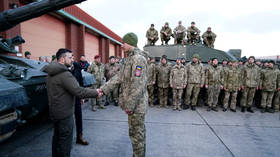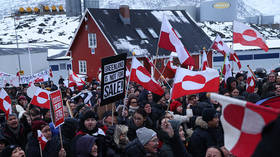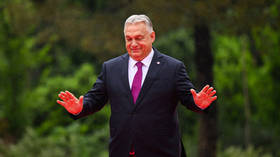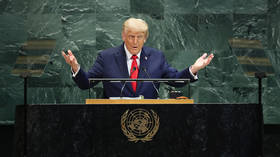‘Human rights were violated’ in Ossetia – European watchdog
Europe’s top human rights official has arrived in war-ravaged South Ossetia on a fact-finding mission. Commissioner Thomas Hammarberg from the Council of Europe Human is being accompanied by his Russian counterpart Vladi
Thomas Hammarberg said: “I know that human rights were violated during the conflict.”
“I’m not going to involve myself in politics”, he said. “I am only here to look at the human rights situation and come up with recommendations on how these rights can be protected in the future. Our report will be objective and impartial”.
Vladimir Lukin added: “Many people had their rights violated, including the primary right to life, to housing, and so on. And this issue requires much attention so we’ve come to find out what happened from that perspective.”
The UN High Commissioner for Refugees, Antonio Guterres, said the scale of damage inflicted on Tskhinvali is overwhelming. He spent two days visiting refugee shelters in North Ossetia and the devastated neighbouring South Ossetia and praised the efforts of Russia's Emergencies Ministry in dealing with the humanitarian crisis in the region.
According to Russia's Emergencies Minister, Sergey Shoigu, the situation in South Ossetia can no longer be described as a humanitarian catastrophe. He made the comments during a meeting with Guterres.
More than 30,000 people left their homes in South Ossetia, almost half of the pre-war population of the region, and 18,000 have already returned home.
Sergey Shoigu said that currently very few people continue to live in tents as specialists are working to construct temporary housing for the local population. The provision of food and medical aid is fully organised in Tskhinvali, he said.
Authorities are also working to restore electricity and the supplies of gas in the city and the central hospital is already receiving electricity.
Local authorities say the main remaining task is to provide decent living conditions for locals, to prepare the city for winter and to restore schools for the upcoming school year.
“By September 1 the schools will definitely be open. The first school has already been fixed and is ready. Two more schools will be ready on time as well,” said Major General Mikhail Tashlyk, head of construction.
Meanwhile, the South Ossetian Parliament has passed a resolution asking Russia to recognise its independence from Georgia.
A local’s story
Aleksandr Bekoyev has been living in Tskhinvali most of his life. He is an Ossetian and carries a Russian passport. Georgian attacks destroyed several houses on his street, leaving many more, including his home, seriously damaged.
“They bombed our homes. Luckily I had some buckets of water so I put out the fire. The neighbours were gone and their houses burnt down. They bombed several times. See, I have no ceiling now! Saakashvili is scary. He is worse than Hitler! They say he is really insane. I cannot understand why the Georgian people obey him,” Bekoyev said.
Harmony in ruined capital
Meanwhile, the principal conductor of the London Symphony Orchestra and artistic director of St.Peretsburg's Mariinsky Theatre, Valery Gergiev, has led a concert in Tskhinvali.
For more on this, please follow the link.












